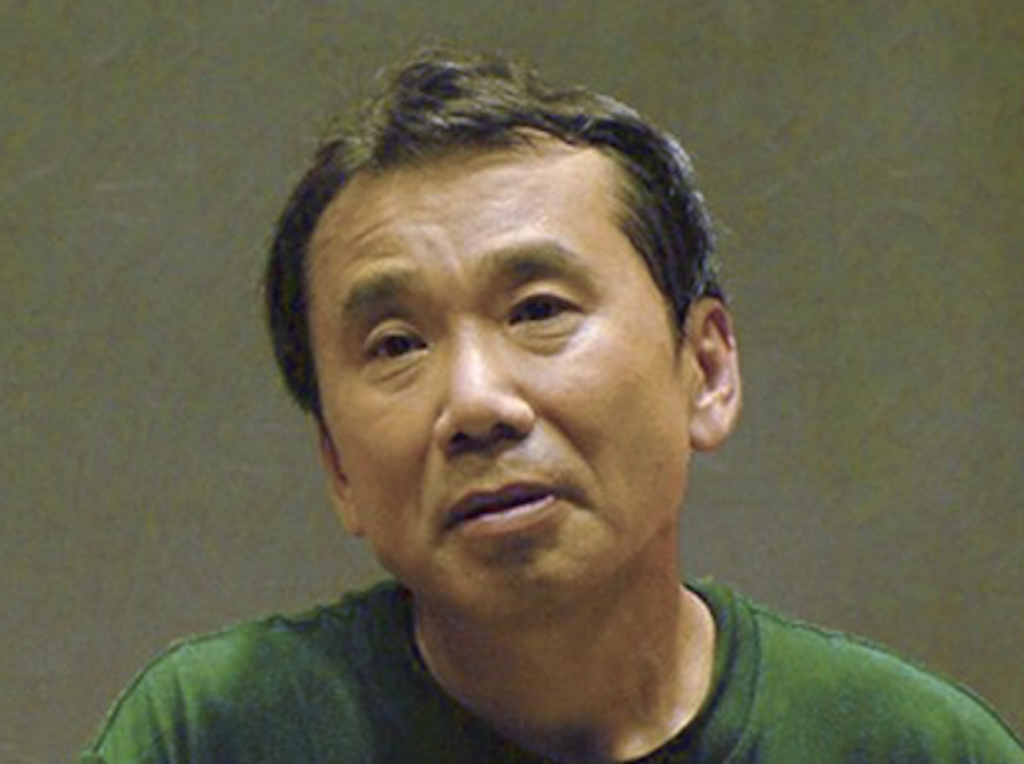
Image by wakarimasita, via Wikimedia Commons
We’ve brought you a wealth of Haruki Murakami lately, and for good reason. Not only does the wildly popular Japanese novelist have a new novel out, he also has an upcoming novella, The Strange Library, a 96-page story about, well, a “strange trip to the library,” due from Knopf on December 2nd. Admirably prolific, writing roughly 3–4 novels per decade since his first in 1979, and a few collections of stories and essays, the notoriously shy Murakami took to writing somewhat late in life at age 30, and to running even later at 33. The latter pursuit gave him a great deal of material for his essay collection What I Talk About When I Talk About Running.
Like other authors who write nonfiction pieces on their avocations—Jamaica Kincaid on gardening, Hemingway on hunting—in his running book, Murakami can’t help but turn his passion for fitness into a metaphor for reading and writing. Given his natural reticence, he begins, with a disclaimer: “a gentleman shouldn’t go on and on about what he does to stay fit.”
Nevertheless, the ultra-marathoner can’t help but indulge. At one point, the writing on running turns to writing on writing, and a summary of the qualities the good novelist must have. Read his thoughts condensed below.
Talent:
Like Flannery O’Connor, whose thoughts on the MFA degree we quoted a few days ago, Murakami frames talent as an attribute that can’t be taught or bought. For the writer, talent is “more of a prerequisite than a necessary quality […] No matter how much enthusiasm and effort you put into writing, if you totally lack literary talent you can forget about being a novelist.” One feels this should go without saying, but for whatever reason, it seems that more people entertain the idea of becoming a writer longer in life than that of becoming, say, a musician or a painter. Maybe this is why Murakami then makes an analogy to music as a pursuit in which, ideally, natural aptitude is indispensable. But in mentioning two of his favorite composers, Schubert and Mozart, Murakami makes the point that these are examples of artists “whose genius went out in a blaze of glory.” He is quick to point out that “for the vast majority of us this isn’t the model we follow.” The novelist as runner, we might say, should train for a career running marathons.
Focus:
Murakami-as-runner, an Economist review muses, is “if not a madman […] a very focused man.” One would have to be to finish 27 marathons, including a 62-mile monster in Hokkaido, and several triathlons. The qualities that serve him in his physical discipline are also those he identifies as necessary in the novelist. Murakami defines focus as “the ability to concentrate all your limited talents on whatever’s critical at the moment. Without that you can’t accomplish anything of value.” He “generally concentrate[s] on work for three or four hours every morning. I sit at my desk and focus totally on what I’m writing. I don’t see anything else, I don’t think about anything else.” Murakami’s running memoir may contain “long descriptions of training schedules and diet,” but when it comes to writing, there seems to be one overwhelmingly singular way to go about things. Just sit down and do it.
Endurance:
Consider yourself more of a sprinter? Maybe stick to short stories. “If you concentrate on writing three or four hours a day and feel tired after a week of this,” Murakami chides, “you’re not going to be able to write a long work. What’s needed of the writer of fiction—at least one who hopes to write a novel—is the energy to focus every day for half a year, or a year, or two years. Fortunately, these two disciplines—focus and endurance—are different from talent, since they can be acquired and sharpened through training.” The act of acquisition, Murakami writes, “is a lot like the training of muscles I wrote of a moment ago. [It] involves the same process as jogging every day to strengthen your muscles and develop a runner’s physique.”
Clearly there’s little room for spacing out waiting around for inspiration. To extend the analogy, this might be likened to the rare desire one gets to try a new, challenging routine, an impulse that wanes pretty quickly once things get painful and dull. But in writing, Murakami suggests, sometimes it’s enough just to show up. He refers to the discipline of Raymond Chandler, who “made sure he sat down at his desk every single day and concentrated” even if he wrote not a word. It’s a fitting image for what Murakami describes as the writer’s need to “transmit the object of your focus to your entire body.” I wonder if it’s not going too far to claim that this sentence betrays the real subject of Murakami’s running book.
via 99u
Related Content:
Haruki Murakami’s Passion for Jazz: Discover the Novelist’s Jazz Playlist, Jazz Essay & Jazz Bar
Josh Jones is a writer and musician based in Durham, NC. Follow him at @jdmagness


Is he wearing a Naval Academy hat in that picture?
“a gentleman shouldn’t go on and on about what he does to stay fit.”
More people need to hear that.
I don’t think you’ve convincingly argued the point how talent is necessary or a prerequisite for running.